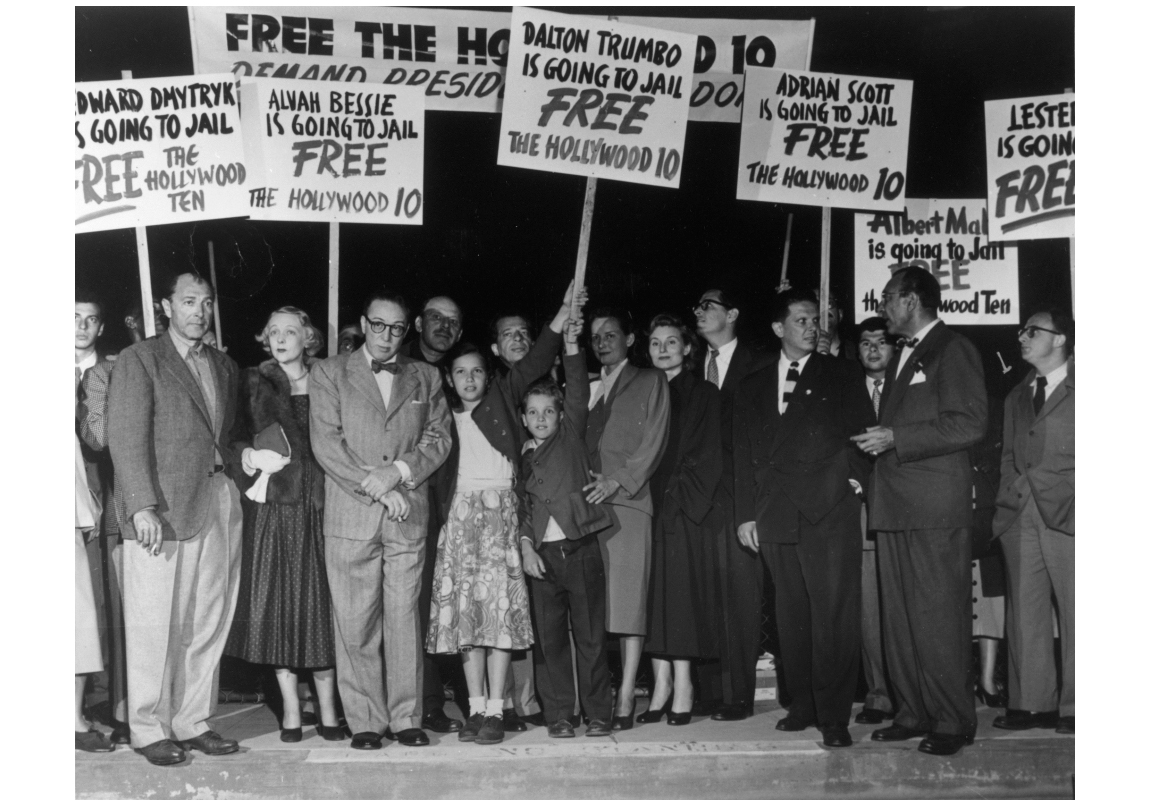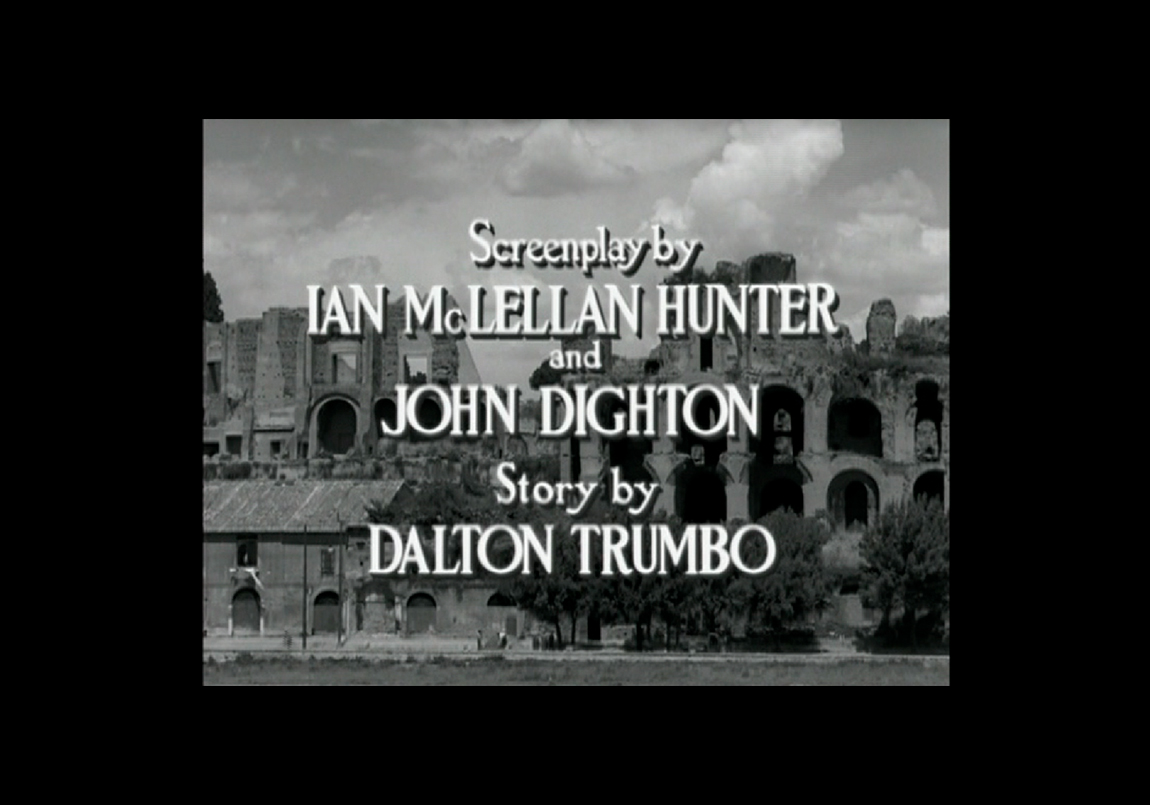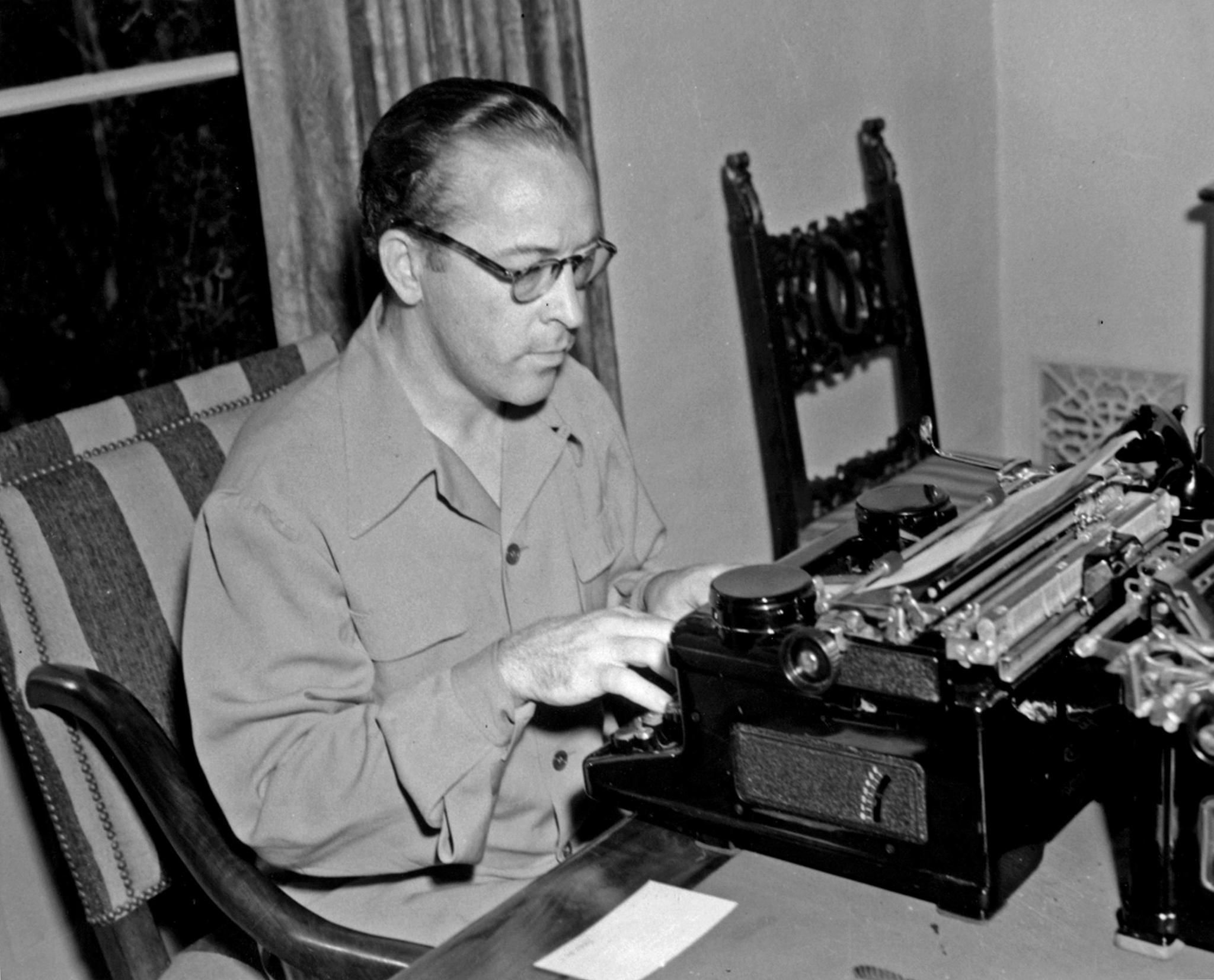Dalton Trumbo - Hollywood's Unsung Hero And Rebel Writer
Dalton Trumbo, a name that echoes through the halls of Hollywood history, represents more than just a person with a real knack for writing stories; he stands for a fierce spirit who faced down very, very great pressure. He was, in a way, probably the most gifted individual among a group known as the Hollywood Ten, a collection of film industry professionals who, in 1947, made a stand by choosing not to speak before a U.S. committee. His remarkable talent and unwavering principles carved out a truly unique path in a challenging time.
His story, is that, a rather stark reminder of a time when political views could cost someone their livelihood in the entertainment business. Dalton Trumbo found himself shut out from working in the film world, but he did not give up. Instead, he kept writing, often using different names, and managed to produce some of the most memorable screenplays of his era, even winning awards while his true identity remained a secret to many.
We're going to take a closer look at the life and work of Dalton Trumbo, a man who, quite literally, wrote his way back into the spotlight, winning awards even when his name couldn't be on the screen. It's a tale of artistic freedom, integrity, and the sheer will to keep creating, which, you know, still resonates with us today.
Table of Contents
- Biography of Dalton Trumbo
- Who was Dalton Trumbo and What Made Him Stand Out?
- The Hollywood Ten - Dalton Trumbo's Stand Against Pressure
- How Did Dalton Trumbo Challenge the Blacklist?
- A Look at Dalton Trumbo's Creative Works
- What Impact Did Dalton Trumbo's Films Have?
- Dalton Trumbo's Lasting Influence
- Why Does Dalton Trumbo's Story Still Matter Today?
Biography of Dalton Trumbo
So, when we talk about Dalton Trumbo, we're really talking about a person whose life was a true American story in a way. He came from rather humble beginnings, yet he managed to rise to the very top of his chosen field. His journey from a young boy to one of Hollywood's most sought-after screenwriters is, quite frankly, a compelling one, showing how determination can overcome many obstacles.
Born James Dalton Trumbo, he was a novelist and a person who crafted stories for the big screen. His path in motion pictures began way back in 1934, and it didn't take very long for him to establish himself as someone whose writing was highly valued by the film studios. He became, more or less, a fixture in the industry, known for his ability to tell a story that truly connected with people. His name became even more widely known during a later period, especially because of events that would shake the film world.
To give you a clearer picture of Dalton Trumbo, here are some personal details:
| Full Name | James Dalton Trumbo |
| Born | December 9, 1905 |
| Died | September 10, 1976 |
| Occupation | Screenwriter, Novelist |
| Notable Affiliation | Hollywood Ten |
| Key Works | Johnny Got His Gun, Roman Holiday, The Brave One, Spartacus, Exodus, Papillon |
Who was Dalton Trumbo and What Made Him Stand Out?
Dalton Trumbo wasn't just another writer in Hollywood; he possessed a singular gift for storytelling that set him apart. My text suggests he was probably the most talented among the Hollywood Ten, which, you know, speaks volumes about his skill. He had a way with words, crafting narratives that were both entertaining and thought-provoking, something that isn't always easy to achieve. He could capture the essence of a character and build worlds that felt real to the audience, a truly special ability.
His writing career saw him move between being a novelist and a screenwriter, proving his versatility. His novel, Johnny Got His Gun, for instance, is often spoken about as a very powerful piece of literature, recognized for its strong message and emotional depth. This work, in particular, showed his capacity to tackle serious subjects with a profound touch. It's almost as if he had a natural understanding of how to make people feel something deep when they read or watched his stories, which, in some respects, is the mark of a truly great writer.
He had a knack for creating scripts that resonated, earning him a place as one of Hollywood's most valued writers within just a few years of starting his career. This early success was a clear sign of his exceptional abilities, and it's interesting to consider how his unique voice shaped the films he worked on. His contributions were, you know, seen as essential to the projects he was involved with, making him a sought-after talent in a competitive industry.
The Hollywood Ten - Dalton Trumbo's Stand Against Pressure
The story of Dalton Trumbo cannot really be told without talking about the Hollywood Ten, a group of film professionals who found themselves at the center of a very intense political storm. This period, known as the McCarthy era, saw a lot of fear and suspicion, especially about supposed communist influences in American society. The House Un-American Activities Committee, or HUAC, began to question people in the entertainment world, wanting them to name others who might hold certain political beliefs. It was, basically, a time when loyalty was questioned and careers could be destroyed with a single accusation.
Dalton Trumbo was among those called to testify before this committee in 1947. Unlike many others who either cooperated or left the country, Trumbo and nine others took a stand. They refused to answer questions about their political affiliations or those of their colleagues, asserting their constitutional rights. This act of defiance, you know, was a direct challenge to the committee's authority and its methods. Their refusal was not taken lightly; it led to immediate and severe consequences, reshaping their lives and the landscape of Hollywood itself.
The committee's tactics were, in some respects, quite coercive, using intimidation to get people to speak. Some observers even drew comparisons between these methods and the oppressive measures that were put in place in Nazi Germany, highlighting the serious nature of the situation. Of all the original ten who stood firm, and others who followed, Trumbo's name perhaps became the most widely recognized symbol of this blacklisted group of film industry writers. His refusal to cooperate made him a prominent figure in this difficult chapter of American history, a man who would not bend his principles even under such immense pressure.
How Did Dalton Trumbo Challenge the Blacklist?
Being blacklisted meant that Dalton Trumbo was essentially shut out from working openly in Hollywood. His name could no longer appear on screenplays, and studios would not hire him directly. This situation would have ended the careers of many, but Trumbo, quite honestly, found ways to fight back and continue his creative work. He was not one to be silenced, even when facing such a significant professional barrier.
His primary method of resistance was to write under different names, using pseudonyms to get his work produced. He would craft scripts in secret, and other writers or friends would often submit them as their own. This allowed his stories to reach the screen, even if his real name couldn't be attached. It was a risky strategy, but one that allowed him to keep his talent alive and, you know, maintain a connection to the industry he loved. This period truly tested his resolve, but his dedication to writing never wavered.
What's truly remarkable is that Dalton Trumbo managed to win two Academy Awards while he was blacklisted. One was for "Roman Holiday" (1953) and another for "The Brave One" (1956). For "Roman Holiday," the award went to Ian McLellan Hunter, who fronted for Trumbo. For "The Brave One," the award went to Robert Rich, another pseudonym. These wins were a powerful testament to his undeniable skill, proving that his writing was still among the very best, even when his identity was hidden. It showed, in a way, that talent can find a path, even when obstacles are placed in its way. He fought for his artistic freedom and integrity in a time when those things were very much under threat, and his quiet victories spoke volumes.
A Look at Dalton Trumbo's Creative Works
Dalton Trumbo's output as a writer was, you know, incredibly varied and prolific, spanning both novels and screenplays. His work touched on a wide range of themes, from the deeply personal struggles of war to grand historical epics. He had a unique ability to tell stories that resonated with audiences, whether they were reading a book or watching a film. His creativity seemed to know no bounds, even when faced with the limitations of the blacklist.
One of his most famous and impactful works is the novel Johnny Got His Gun. This book, published in 1939, tells the story of a young American soldier who is severely wounded in World War I, losing his limbs and senses, yet remaining conscious. It's a powerful anti-war statement that has, quite frankly, left a lasting impression on many readers. The novel was later adapted into a film, which Trumbo himself directed, further cementing its place as a significant piece of his creative legacy. It's a story that truly makes you think, and it shows his capacity for deep, emotional storytelling.
Beyond his novel, Dalton Trumbo's filmography is rather extensive and impressive. Even during his blacklisted years, he contributed to many well-known movies. Films like Spartacus (1960) and Exodus (1960) are prime examples of his work during this period, where his name eventually reappeared on the credits after the blacklist began to crumble. These films were not just popular; they were, in some respects, significant cultural events, showing his ability to craft narratives on a grand scale. My text mentions digging into 11 of his films, from his early works to those made during and after the blacklist, highlighting the sheer breadth of his contributions to cinema.
What Impact Did Dalton Trumbo's Films Have?
The films that Dalton Trumbo wrote, whether under his own name or a different one, often had a profound impact on audiences and the film industry. His stories weren't just about entertainment; they frequently carried deeper messages or explored complex human experiences. For example, the epic scale and human drama of Spartacus, which he wrote, really captivated people and became a very important movie of its time. It showed that big-budget films could also have a strong, thoughtful core.
His work helped to shape the narrative of many beloved movies, influencing generations of filmmakers and writers. The fact that he could produce such high-quality work, even when operating in the shadows, speaks volumes about his dedication and skill. He contributed to films that became classics, leaving an indelible mark on cinematic history. His influence, you know, extended beyond just the plot; it was in the way he crafted dialogue, developed characters, and structured the story to evoke strong feelings.
Many of his films explored themes of freedom, justice, and the human spirit's ability to endure, which, in some respects, mirrored his own life experiences. His talent as a great screenwriter, as my text points out, should never be forgotten, even though he is often remembered for his role in the Hollywood Ten. His body of work stands as a powerful collection of stories that continue to be watched and discussed, proving the lasting power of his creative vision. He truly understood how to make a film connect with people on a deeper level, a skill that is very, very rare.
Dalton Trumbo's Lasting Influence
Dalton Trumbo's story is, in many ways, a truly American one, as my text suggests. It's a narrative of overcoming difficult beginnings and rising to the very top of one's chosen profession. His journey from humble roots to becoming one of the most respected screenwriters in Hollywood is a powerful example of perseverance and talent. He faced immense challenges, yet he never stopped pursuing his passion, which is something that, you know, inspires many.
His fight against the blacklist became a symbol of artistic freedom and integrity. When he was finally able to put his name back on his work, it marked a significant turning point, not just for him, but for the entire industry. It showed that the period of fear and suppression was starting to fade, and that truth and talent could, in the end, prevail. His return to open credit on films like Exodus and Spartacus was a very public victory against injustice, signaling a shift in Hollywood's attitude towards those who had been blacklisted.
Dalton Trumbo's legacy extends beyond just his films and novels. He represents a principled stand against political interference in creative expression. His life serves as a reminder that even in the face of overwhelming pressure, it is possible to maintain one's beliefs and continue to contribute meaningful work. His story is, basically, a testament to the enduring power of the human spirit and the importance of fighting for what you believe in, even when the odds seem stacked against you.
Why Does Dalton Trumbo's Story Still Matter Today?
Dalton Trumbo's story continues to hold relevance in our current world for several important reasons. His experiences with the Hollywood Ten and the blacklist serve as a powerful historical lesson about the dangers of censorship and the suppression of dissenting voices. It reminds us that freedom of expression is not something to be taken for granted and that, you know, it requires constant vigilance to protect it.
His unwavering commitment to his craft, even when he was forced to work in secret, is a source of inspiration for anyone facing adversity. Trumbo's ability to keep creating, to keep telling stories, despite being shut out by the very industry he loved, demonstrates a remarkable resilience. It shows that passion and determination can, in some respects, overcome even the most formidable obstacles. His story is a powerful reminder that true talent will always find a way to shine through, no matter the circumstances.
Furthermore, Dalton Trumbo's life highlights the importance of integrity and standing up for one's principles. He refused to compromise his beliefs, even when it meant personal and professional hardship. This aspect of his story resonates deeply, reminding us that there are times when taking a stand, even if it's unpopular, is the right thing to do. His fight for artistic freedom and integrity, as my text notes, is a narrative that continues to inspire discussions about individual rights and societal pressures. It's a tale that, quite frankly, encourages us to reflect on our own values and how we might respond when faced with similar pressures.
This exploration of Dalton Trumbo's life has covered his early career, his pivotal role in the Hollywood Ten, his resourceful ways of continuing to write while blacklisted, including his Academy Award wins under pseudonyms, and the lasting impact of his creative works and personal courage.

Dalton Trumbo – Clase bcn

Dalton Trumbo – Clase bcn

Pictures of Dalton Trumbo